Hey there! If you’ve ever found yourself zoning out after a quick round of Stardew Valley or feeling that little rush of triumph when you finally beat a tough boss, you’ve already experienced how games can mess with your brain—in a good way. Today we’re diving straight into the heart of the matter: how gaming can boost mental wellbeing, where the pitfalls hide, and simple steps you can take to make your playtime a genuine therapy session. No fluff, no endless history lessons—just the stuff you actually wanted to know, handed to you over a friendly cup of coffee.
Why Gaming Matters
It’s not just a hobby for 2‑billion‑plus people; it’s becoming a recognized tool in mental‑health conversations. Researchers are finally giving the “fun” part of games its due credit, and clinicians are starting to talk about “prescribing” certain titles. According to a 2024 JMIR Serious Games study, casual games that sprinkle brief mental‑health messages can actually lower self‑reported anxiety. That’s a lot of official validation for something we’ve all felt intuitively.
Stress Relief & Anxiety Reduction
Ever notice how a session of Animal Crossing can feel like a mini‑vacation? That’s the power of gaming anxiety reduction in action.
How Games Calm the Nerves
- Flow state: When you’re fully absorbed, the brain releases dopamine and pushes stress hormones aside.
- Controlled exposure: Games let you face challenges in a safe, virtual sandbox—great for building tolerance to real‑world anxiety.
- Distraction with purpose: Focusing on a puzzle or quest redirects rumination without “numbing” you.
Research Snapshot
A 2024 JMIR Serious Games paper reported that participants who played brief, mood‑boosting games reported a 23% drop in anxiety scores after just ten minutes. The same trend showed up in a Verywell Mind roundup, which highlighted titles like Journey and Flower as “low‑pressure stress‑relief champions.”
Quick‑Look Stress‑Relief Table
| Game Type | Core Stress‑Relief Feature | Typical Session Length |
|---|---|---|
| Casual sandbox | Open‑ended creativity | 20‑45 min |
| Puzzle/skill | Incremental challenge | 10‑30 min |
| Co‑op adventure | Social connection | 30‑60 min |
Mood Boost & Depression Management
Play isn’t just a distraction; it can be a genuine mood enhancer. A longitudinal study cited by Verywell Mind found that regular, moderate gaming correlated with higher self‑reported wellbeing scores among adults aged 18‑45.
Take the Healthline writer’s story (2025) as a concrete illustration. After battling depression with psychotic features, she discovered that immersive journeys like The Unfinished Swan and Journey gave her a “flow” that felt like a mini‑meditation. “It was the first time I felt genuinely light,” she writes, describing how the game’s gentle pacing let her focus on something beautiful rather than on relentless negative thoughts.
Cognitive & Emotional Regulation
Games don’t just lift your spirits—they also train the brain. The concept of “flow” (see Medical News Today) explains how a perfect balance between challenge and skill pushes the brain into a state where learning happens almost without effort. By tackling puzzles, managing resources, or navigating moral choices, players rehearse real‑world decision‑making.
Think of it like a virtual gym for your executive functions: planning, impulse control, and emotional regulation all get a good workout. A clinical psychologist quoted in the JMIR Serious Games study notes, “Structured game challenges can serve as micro‑exposures that help patients practice coping strategies in a non‑threatening environment.”
Choosing the Right Games for Your Needs
Just like you wouldn’t take the same medication for every ailment, not every game fits every mental‑health goal. Below is a quick guide to match your objectives with the most supportive titles.
Goal‑Based Recommendations
| Goal | Recommended Game | Why It Helps |
|---|---|---|
| Reduce anxiety | Journey | Calming visuals, minimal pressure |
| Build social support | Fortnite (co‑op mode) | Real‑time teamwork and community |
| Process trauma | Shadow’s Edge (free mobile) | Narrative‑therapy prompts & expressive art tools |
Balance & Routine
Research from Mental Health England suggests tracking your play using a simple gaming log**. Jot down the game, duration, and a quick mood rating before and after. Patterns emerge—maybe you notice that 30‑minute puzzle sessions leave you feeling refreshed, while marathon raids spike fatigue.
Typical healthy guidelines look like this:
- Frequency: 2‑3 sessions per week.
- Duration: 20‑45 minutes per session (enough for flow, not enough to burn out).
- Log it: Record mood, stress level, and any physical symptoms.
Social & Community Benefits
Playing isn’t a solo sport—unless you want it to be. LAN parties, Discord guilds, and in‑game clans create a sense of belonging that can counteract loneliness.
The Healthline writer recounts organizing a weekend LAN for Diablo IV. “We ate pizza, shouted at each other’s mistakes, and then laughed about it,” she says. That shared experience turned strangers into friends, and the social glue helped her feel less isolated during a tough period.
Online communities also provide a platform for sharing coping strategies. A post on the AbleGamers forum described how a group of players used weekly co‑op missions to practice mindfulness—each pause between battles became a mini‑breathing exercise.
Potential Risks & How to Keep Play Healthy
Games have a bright side, but they can cast shadows too. Recognizing the line between “healthy escape” and “problematic use” is key.
Warning Signs
- Skipping work, school, or social events to game.
- Feeling irritable or anxious when you can’t play.
- Neglecting sleep, nutrition, or physical activity.
- Using games solely to avoid emotions rather than process them.
When these patterns emerge, it’s time to set boundaries. The World Health Organization’s definition of “gaming disorder” includes loss of control and continued play despite negative consequences. A quick self‑check quiz can help you see where you stand.
Mitigation Strategies
- Set alarms: Use a timer to cap each session.
- Tech‑free zones: Keep your bedroom a no‑gaming zone for at least an hour before bed.
- Log insights: Your gaming log will reveal if sessions are becoming “stress‑relief” or “stress‑source.”
- Curate content: Choose titles with lower violence levels if you’re sensitive to aggressive themes.
Content Triggers
Some games can inadvertently trigger anxiety or trauma reminders. If you notice a spike in heart rate or negative thoughts after a particular storyline, consider switching to a calmer genre. Parental controls and content filters aren’t just for kids—they’re tools for anyone looking to protect their mental space.
Real‑World Experiences (EEAT)
Nothing beats stories from people who have walked the path.
Healthline Writer’s Journey
She grew up with Nintendo, felt “average” compared to her brothers, and only in her late 20s realized that the immersive narratives of The Unfinished Swan and Journey helped her access a “different plane of thought.” Her anecdote illustrates the transition from “play for fun” to “play for therapy.”
Young Minds Blog – Wes’s Story
Wes describes how, during a rough university year, gaming gave him a structured goal—defeating the next boss—that felt more manageable than his looming dissertation. He credits the social bonds formed in Fortnite and the routine of logging in daily as crucial buffers against depression and anxiety.
Clinical Perspective
Jens Peter Eckardt, author of the 2024 JMIR Serious Games paper, emphasizes that “digital mental‑health interventions, when thoughtfully designed, can complement traditional therapy.” He points out that serious games, as well as commercial titles, both hold therapeutic promise when paired with professional guidance.
Practical Tools & Resources
Ready to turn theory into practice? Below are a few free resources you can start using today.
Downloadable Gaming‑Log Template
Our simple log includes columns for date, game, minutes played, pre‑play mood (1‑10), post‑play mood (1‑10), and any notes. Print it or keep it in a spreadsheet—whichever feels less intimidating.
Apps That Pair Well with Play
- Moodfit: Tracks mood alongside activity, so you can spot trends.
- Daylio: A habit‑tracker that lets you add a “gaming” entry with a quick emoji.
Professional Support & Communities
If you ever feel your gaming is slipping into a compulsive pattern, consider reaching out to specialists. According to AbleGamers, there are counselors experienced in gaming‑related issues. Also, the Mind Gaming report from Mental Health England provides a research‑backed framework for using games mindfully.
Emerging Therapeutic Games
- Shadow’s Edge: Free mobile game built around narrative therapy, art prompts, and a supportive in‑game community.
- Ring Fit Adventure: Combines physical exercise with adventure gameplay—great for boosting endorphins.
Balancing the Scale: Benefits vs. Risks
Think of gaming as a plant. With proper sunlight (joyful titles), water (moderate playtime), and nutritious soil (social connection), it grows tall and vibrant. Too much fertilizer (excessive hours) or no sunlight (isolated, negative‑tone games) can wilt the plant. Your job is to tend to it mindfully.
Take the First Step Today
Pick a game that feels inviting—maybe Stardew Valley for its gentle routine, or Journey if you crave a short, emotional trip. Set a timer for 30 minutes, launch the game, and after you finish, jot down how you feel. Notice the shift? That’s your brain saying, “Hey, this works!” Over time, you’ll have a personal data set showing which games lift you up and which might be dragging you down.
Remember, gaming is a tool—not a cure‑all. If you continue to struggle with anxiety, depression, or any mental‑health concern, pair your play with professional help. The best outcomes happen when you blend the fun of gaming with evidence‑based therapies.
Join the Conversation
What game has helped you feel calmer or more focused? Have you tried keeping a gaming log? Share your experience in the comments below or drop a quick note on a forum you trust. Your story could be the spark someone else needs to turn a hobby into a health‑boosting habit.
And if you found this guide useful, feel free to pass it along to a friend who might need a gentle nudge toward healthier play. After all, good vibes are meant to be shared—just like that rare loot drop you finally snagged after weeks of grinding.

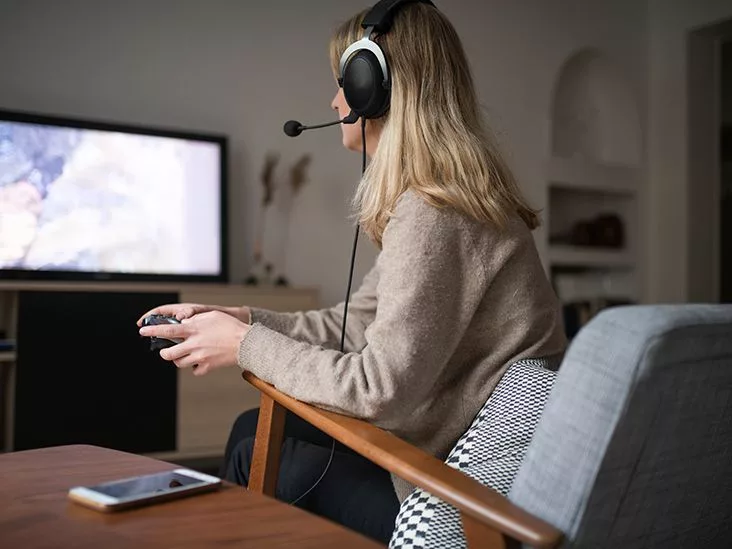


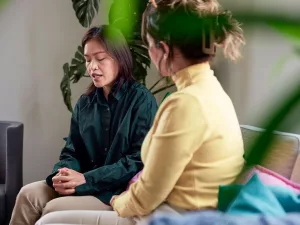
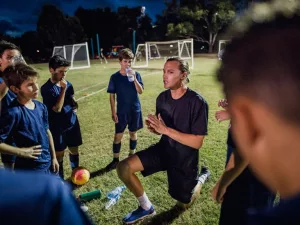
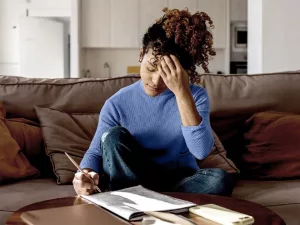
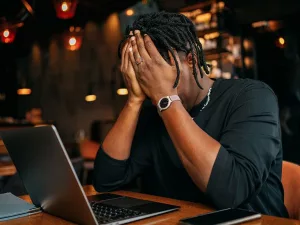
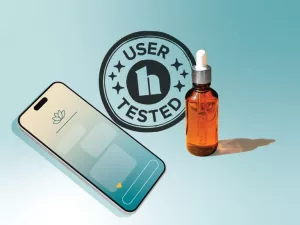




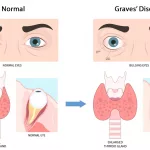










Leave a Reply
You must be logged in to post a comment.